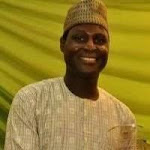By Isqil Najim
In the theater of public engagement, we, the people, are perpetually relegated to the audience, a sea of spectators straining to decipher a performance staged in shadows, by powerful people: Be it in Politics, Religion, or simply among celebrities.
We are onlookers, seekers of truth, validation of our truth, in a landscape obscured by carefully curated narratives and subjectively incomplete disclosures.
Whether it's the high-stakes drama of political rivalry, the fleeting spectacle of celebrities feuds (which sometimes turned out to be marketing gimmicks), or the allure of public scandals, our understanding is invariably limited to the fragments presented to us. There are always some undisclosed details on both sides.
This dependency on mediated information leaves us vulnerable. We fight each other, verbally, mentally and psychologically. Not knowing when we successfully inherited someone else's enemies and gain friendship of an undeserved whose only qualification is his concurrence with our half truth, sometimes, outright lies and propaganda.
What we read are also subjected to discretion of media as well as their spicy information. The media, both traditional and social, control the narrative, illuminating juicy aspects of the story; both for engagement farming and commercial motives.
The characters involved, driven by their own agendas, carefully manage their public personas, withholding crucial details and crafting narratives designed to sway public opinions in their favour. Depending on what side of the Public they fall into.
This inherent asymmetry creates a chasm between reality and perception, leaving us to navigate a maze of half-truths, calculated omissions, and the insidious spread of repeated falsehoods that are deceptively accepted as truth.
Many times, the media's role is not merely about passive transmission. A a lot of writers, presenters and anchors have found cleaver way of injecting their person opinions and biases into public narratives. The inherent subjectivity of reporting, or presenting have introduced layers of distortion, often masquerade as objective facts. It is not uncommon today to see, even educated folk quote reporter and presenters, when in realty these people do not, by themselves have access to the deeper truth beyond what was revealed by their guests.
The quest for sensationalism, which, i must admit are in high demand by the citizens; the desire to capture attention in a crowded information landscape, leads to embellished narratives and a reliance on "spicy information" that prioritizes trending over accuracy.
This tendency to amplify drama and simplify complex issues creates a skewed perception of reality, where nuance is sacrificed for impact.
The structure of news reporting itself contributes to this problem. Headlines, introductions, and conclusions, designed to capture attention and summarize key points, often become the sole source of information for many people who are too lazy to read through the entire article.
In a world of shrinking attention spans, these concise summaries shape public opinion, even when they present a distorted or incomplete picture. The subtle framing, the carefully chosen words, and the strategic omission of context create a narrative that resonates with readers, even if it lacks accuracy.
This reliance on superficial information leads to the formation of public opinions based on fleeting impressions rather than informed understanding.
We build our convictions on the scaffolding of headlines and soundbites, constructing elaborate narratives from fragmented pieces of information.
The result is a public discourse characterized by polarization and misinformation, where deeply held beliefs are built on a foundation of shifting sands, personal like or dislike of the characters or their party, region, or religion.
We must cultivate a critical eye, recognizing the inherent limitations of mediated information. We must learn to question the narratives presented to us, to seek out diverse perspectives, and to resist the allure of simplistic explanations.
We must demand transparency from those in the public eye and accountability from the media that shapes our understanding. Only then can we move beyond the role of passive spectators and become active participants in a more informed and nuanced public discourse.


.jpeg)


0 Comments